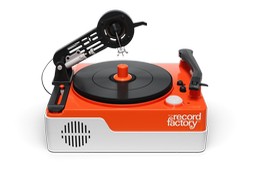For people who are bald or balding and haven't come to terms with it, no fix seems too crazy to try. I mean, just look at whatever's happening on top of Donald Trump's head. That being said, this latest "cure" is pretty out there. A widely-reported study out of Japan points to McDonald's french fry grease as having the potential to stimulate hair growth. That's right: the remedy for your thinning hair may have been just a drive-thru window visit away this whole time.
Scientists at Yokohama National University found that dimethylpolysiloxane, a compound found in the grease, produced large amounts of hair follicle germs (HFGs), the spots where new hairs grow out of, in mice over a short period of time. The team wrote in the scientific journal Biomaterials that the findings are "robust and promising" when it comes to identifying a fix for baldness, a condition that has baffled medical professionals for decades.
But before you run to the nearest Mickey D's and dump a large order of fries on your head, be aware that there's considerable (and probably valid) skepticism on this one. First of all, just because something produces a reaction in mice doesn't mean it's necessarily going to have the same effect on humans, since, you know, we're different species. Also, as Grub Street points out, while it's certainly attention-grabbing to connect the compound to french fries (hey, you're reading this story, aren't you?), the silicone polymer dimethylpolysiloxane is also used in everything from Silly Putty to adhesives to cosmetics. Which begs the question: if this stuff stimulates hair growth, why hasn't my concealer caused me to grow a beard yet?
Probably because just applying the compound alone isn't enough to stimulate significant hair growth. A key fact that's been ignored by a lot of news outlets reporting on the study is that it wasn't just rubbed on or fed to the mice, but rather used by the scientists as a culture substrate to grow the HFGs before transplanting them onto the rodents, who then began to produce hairs. Basically, what the dimethylpolysiloxane helped produce were hundreds of vessels from which bio-engineered follicles could then grow.
Does that make sense? Are you as sick of seeing the word dimethylpolysiloxane as I am of typing it? The big takeaway here is that while, sure, a compound found in french fry grease could play a role in hair rejuvenation, there's still a lot of missing pieces. Regardless, I'm not sure how McDonald's managed to attach their name to this study so effectively, but someone in their marketing department deserves a serious raise.






